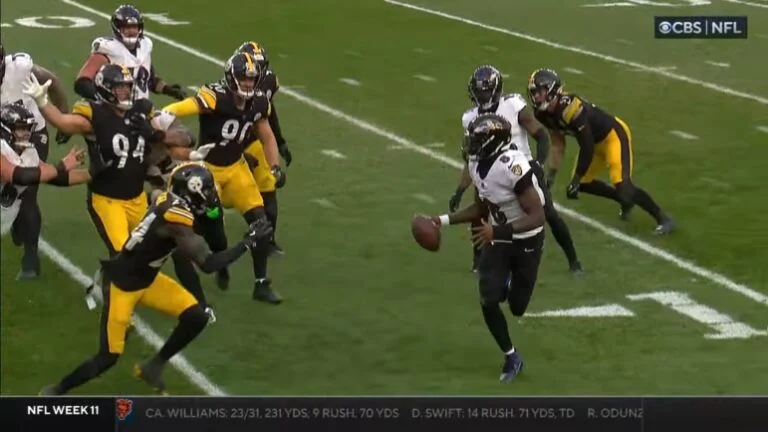In an unexpected turn of events, Pittsburgh Steelers head coach Mike Tomlin has admitted that the Baltimore Ravens’ daring two-point conversion attempt before a crucial timeout had a significant influence on his game-time decision-making. The admission, which came during a post-game interview, has sparked debate across the NFL, with many questioning whether Tomlin’s response was driven by genuine surprise or an attempt to manage perceptions.
The play in question took place during a high-stakes AFC North matchup between the Steelers and the Ravens. With less than a minute left on the clock and the Ravens holding a slim lead, Baltimore’s offense lined up for a two-point conversion after scoring a touchdown. The Ravens’ aggressive play-call caught many by surprise, as the Ravens opted to attempt the conversion rather than settle for an extra point, potentially giving them a decisive edge should the Steelers score again.
Tomlin, who was watching from the sideline, was clearly taken aback by the bold move. “Damn right, seeing that two-point conversion play before the timeout influenced my thinking,” Tomlin remarked candidly. “It was an unexpected call, and it made me reconsider our next move. You never know what can happen in these kinds of games, and I wanted to make sure we were prepared for anything.”
While some might see Tomlin’s admission as a sign of self-awareness, others are less convinced. Critics argue that Tomlin, a seasoned coach with years of experience, should have been prepared for any situation, especially one as predictable as a high-risk two-point attempt. In a game defined by split-second decisions, the suggestion that one play could influence a coach’s strategy raises questions about his preparedness and adaptability.
Despite the controversy surrounding his comments, Tomlin’s Steelers emerged victorious, holding the Ravens off in the final moments to secure a narrow win. However, the aftermath of his remarks has stirred conversations about coaching strategies and the role of external factors in high-pressure situations. Whether or not Tomlin was truly “shocked” by the Ravens’ bold decision, his transparency has ignited a deeper discussion about how much influence such moments should have on a coach’s decision-making process.
In the end, while the Ravens’ gamble might have rattled Tomlin momentarily, the Steelers’ victory proves that in the NFL, it’s not always about how you react in the moment, but how you manage the entire game.
